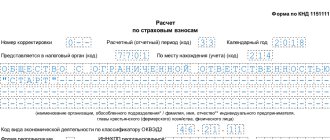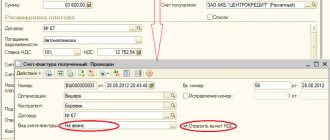Home Finance Taxes
Currently, many organizations that apply VAT are increasingly faced with questions related to the correct calculation of tax. It is believed that this one is one of the most difficult to calculate. By placing a huge tax burden on an organization, its incorrect calculation can lead to financial difficulties.
Many amendments are made to the Tax Code of the Russian Federation every year, so VAT payers are always on guard with the law. For example, the most typical and pressing question that arises from the taxpayer: VAT - how much interest in 2021? Remember, all the little details are important!
Tax authorities exercise serious control over VAT payers. During checks, many different errors are found. All errors are typical and require a deeper understanding and study of even minor details. It is important not to think that complex tax calculations and audits will not allow you to work correctly, without errors. It's not like that at all. You just need to take a deeper look at the tax, its elements, the procedure for their application, and only then draw conclusions that avoid typical mistakes.
Submission of electronic explanations to the VAT return
It has now become mandatory to submit an electronic clarification for the VAT return. Previously, an accountant could choose a paper version for submission to the Federal Tax Service. From January 2021, explanations are submitted only in an electronic file through a special operator. This norm is enshrined in clause 3 of Art. 88 Tax Code of the Russian Federation.
For such an updated sending of an electronic explanation at the request of the Federal Tax Service during desk checks, up to five days are allocated. Explanations submitted in printed form are not considered submitted. For failure to provide explanations in accordance with the rules, the first penalty payment will be 5 thousand Russian rubles. Additional failure to provide an explanation will cost 20 thousand Russian rubles.
Changes to the application procedure for compensation
The innovations in the application of the declarative procedure for compensation described in Art. 176.1 Tax Code of the Russian Federation:
- The list of persons entitled to apply this procedure has been added. Now these include those taxpayers who have a guarantor who is ready to pay for them the amount received in excess or offset when using the application procedure if, as a result of the audit, the refund is found to be unfounded (subclause 5 has been added to clause 2).
- The requirements for the guarantor have been determined (clause 2.1 has been added), who at the time of issuing the guarantee must: be a Russian legal entity;
- pay to the budget for 3 years ending before the year the guarantee was issued in an amount of at least 7 billion rubles. taxes such as VAT (excluding paid at customs and as a tax agent), excise taxes, income tax and mineral extraction tax;
- have valid guarantee agreements (including those issued for a taxpayer who is still claiming compensation using the application procedure) for a total amount of no more than 20% of their net assets calculated at the end of the year ending before the year the guarantee was issued;
- not be in the process of bankruptcy, reorganization or liquidation;
- have no tax debts.
- the period before which its validity cannot expire has been increased (from 8 to 10 months);
Thus, the changes made to the application procedure make it possible to apply it to a much wider range of taxpayers.
For a comparison of the main characteristics of the general and declarative procedures used for refunds, read the publication “Features and terms for the general and declarative procedures for VAT refunds.”
Collection of VAT on paid Internet services of foreign companies
On January 1, Law No. 224 Federal Law came into effect, regulating the procedure for calculating VAT on the services of foreign companies provided by them to citizens of the Russian Federation via the Internet and other information and telecommunication channels. Taxable services include access to archived information, advertising, domain names, hosting and website administration. The Tax Code establishes a rule requiring the collection of VAT on the sale of electronic books, images, audiovisual files, computer programs and games, including the provision of paid access to them on the Internet, if they were purchased by citizens of the Russian Federation. Previously, electronic services provided by foreign residents were not subject to VAT.
A foreign company must submit an application for registration to the Federal Tax Service within thirty days from the beginning of its provision of the above services to Russian citizens. Foreign companies are required to submit declarations and other documents in the tax payer’s personal account registered on the tax website.
The Russian Federation becomes the territory for the provision of Internet services when the bank, bank account for payment for the service, the operator of electronic funds that transferred funds for the service, the network address or telephone code of the buyer of the service are registered in the Russian Federation.
Results
From 07/01/2017 in ch.
21 of the Tax Code of the Russian Federation has introduced another batch of changes. Among them is the addition of invoice details, which applies to all taxpayers, entailing an adjustment to the form of this document. Another significant innovation was the expansion of the circle of persons to whom tax refunds are available through application. You can find more complete information on the topic in ConsultantPlus. Free trial access to the system for 2 days.
VAT rate in 2021
The basic VAT rate is 18%. Socially significant goods are subject to 10% and 0% VAT (according to the one hundred and sixty-fourth article of the Tax Code of the Russian Federation). The following services are exempt from VAT: educational institutions, banks, funeral homes, religious organizations, and passenger transportation.
From 2021, the number of VAT payers at a 10% rate will increase. Companies selling periodicals pay a 10% tax. The exception is advertising publications, on the pages of which the amount of advertising exceeds 45% of the content of the publication (Federal Law of November 30, 2016 No. 408-FZ). Previously, the advertising norm was 40%.
Passenger transportation and transportation of luggage over long distances by Russian railways are subject to 0% VAT from 2021 (subclause 9.3 clause 1 of article one hundred and sixty-four, clause 5.3 of article one hundred and sixty-five of the Tax Code of the Russian Federation). Until 2021, the tax rate for such transportation was 10%. The carrier has the right to approve a zero rate by providing the Federal Tax Service with a list of appropriate documents. It indicates: numbers of shipping invoices; points of departure and destination; dates of provision and cost of services.
Now, having received regional or regional subsidies, you must pay VAT, previously deducted by the company. VAT requires restoration if the company received subsidies from the state budget (subparagraph six of paragraph three of Article 170 of the Tax Code of the Russian Federation as amended by Law No. 401-FZ). Previously, the tax was restored by companies in the course of reimbursement from the federal budget of costs for the purchase of work, necessary material items, and services.
Firms and individual entrepreneurs registered in Russia, purchasing electronic services from foreign corporations or acting as intermediaries in mutual settlements between Russian citizens and foreign sellers of Internet services become tax agents. Therefore, they are required to calculate VAT - Art. 174.1, clause 1, art. 148, paragraph 1, 2 art. 161 of the Tax Code of the Russian Federation as amended. Federal Law dated July 3, 2016 No. 244 Federal Law. The Russian customer of the service withholds VAT from any payment at a rate of 18/118.
The list of controlled transactions from the beginning of the new year does not include interest-free loans and guarantees provided to Russian companies (subclauses 6, 7, clause 4, Article 105.14 of the Tax Code of the Russian Federation - Federal Law No. 401-FZ). The Federal Tax Service does not control pricing for such transactions and does not require tax authorities to be informed about them.
The invoice has been updated - does the declaration change for the quarter (month)?
A new detail entered into the invoice was information about the data of the government contract, agreement or agreement, in pursuance of which the shipment is issued, accompanied by the issuance of an invoice, if such a document (contract, agreement or agreement) exists in the relationship between the parties.
The requirement to indicate information about the government contract (contract, agreement) turned out to be mandatory for invoices of all three main types (Article 169 of the Tax Code of the Russian Federation):
- ordinary (subclause 6.2 added to clause 5);
- advance (added subclause 4.2 to clause 5.1);
- adjustment (subclause 6.1 was added to clause 5.2).
Accordingly, the document defining the form and rules for issuing invoices, i.e., Decree of the Government of the Russian Federation dated December 26, 2011 No. 1137, also required updating. The necessary changes were made to it by Decree of the Government of the Russian Federation dated May 25, 2017 No. 625. They are equally touched upon Annexes No. 1 and No. 2 of Resolution No. 1137, thereby covering all types of invoices compiled. The innovations boiled down to the following:
- In the invoice form, another row has been added to the rows located above the main table, called “Identifier of the government contract, agreement (agreement).”
- The filling rules are supplemented with a description of the data that should go into the new line. In comparison with the wording of the name assigned to the new requisite of the Tax Code of the Russian Federation, this description has been expanded by clarifying that the new requisite (state contract, agreement, agreement) must refer to a document concluded in connection with the receipt by a legal entity of funds from the federal budget in the form of subsidies, budget investments or contributions to the authorized capital.
Thus, despite the change in the form of the invoice, which affected all persons working with it, not every taxpayer will have to fill out the new details.
Other documents compiled on the basis of information from invoices are not affected by the innovations. That is, books of purchases and sales, declarations (both quarterly and monthly) are formed on the same forms that were valid before 07/01/2017.
For the new invoice form, see the material “New electronic format and new invoice form from 07/01/2017 (form)”.
KBC for VAT deductions in 2021
• goods, works, services sold within the borders of the Russian Federation: - for tax: 18210301000011000110; — for penalties: 18210301000012100110; — for fines: 18210301000013000110;
• goods supplied from Belarus and Kazakhstan: - for tax: 18210401000011000110; — for penalties: 18210401000012100110; — for fines: 18210401000013000110;
• goods reshipped from other countries to the Russian Federation (administrator - FCS): - for tax: 15310401000011000110; — for penalties: 15310401000012100110; — for fines: 15310401000013000110.
From 2021, new BCCs are valid for payment orders for insurance premiums, penalties and interest on them. Payments for insurance premiums are now sent to the Federal Tax Service.
What documents confirm that the implementation has been carried out?
You can prove the implementation of the sale using documents drawn up during business transactions. This capacity usually includes contracts, invoices, acceptance certificates, invoices and cash documents. It is noteworthy that the invoice is not included in this list. Arguments in favor of ignoring it can be found in the resolution of the Federal Antimonopoly Service of the East Siberian District dated February 26, 2009 No. A19-6750/08-57-F02-150/09.
Arbitration practice, in addition, indicates that the tax authorities can prove the fact of sale only if they have a set of documents. A separate document, for example, an agreement, cannot serve as a basis for recognizing a transaction as subject to VAT. However, there are court decisions with opposite verdicts.
Exemption from VAT
Cancellation of VAT payment under Art. 145 of the Tax Code of the Russian Federation obliges to present the following packages of documents: 1. Companies remaining to work in OSNO: • notification of rights to exemption from VAT payment; • balance sheet statement showing accounting revenue for the three-month period before the month of release; • an excerpt from the sales book with results for the three-month period before the month of release.
2. Companies switching from simplified taxation system to OSNO: • notification and excerpt from the book of profit and waste (for a three-month period before the month of exemption).
The following organizations have the right not to pay VAT on advance receipts in 2017: • exempt from VAT; • working under a special regime; • exporting or selling their products outside the Russian Federation; • services sold by the organization; or goods not subject to VAT; or tax rate 0%; • those who have received advance payment for goods whose production period is longer than six months.
Updated: maxim 2017-03-03 09:47:19
Formation of value added tax
How VAT is formed is a question that interests all novice accountants and businessmen. For the production cycle, the enterprise purchases raw materials, the cost of which already includes tax. After the goods are manufactured, the moment comes to calculate all costs - the formation of the cost price. Next, the amount of pledged profit is determined and VAT is added on top. The resulting figure is the selling price of the goods produced.
In this case, the amount of tax paid to the supplier of raw materials is a deduction, the so-called. “input” VAT. This figure is taken into account as the debit of account 68 (sub-account for VAT calculations). 18% of the revenue received (when selling products or selling services) is the amount to be taken into account under credit 68 of account. The debit balance is the amount of tax reimbursed by the state, the credit balance is subject to transfer to the budget.




